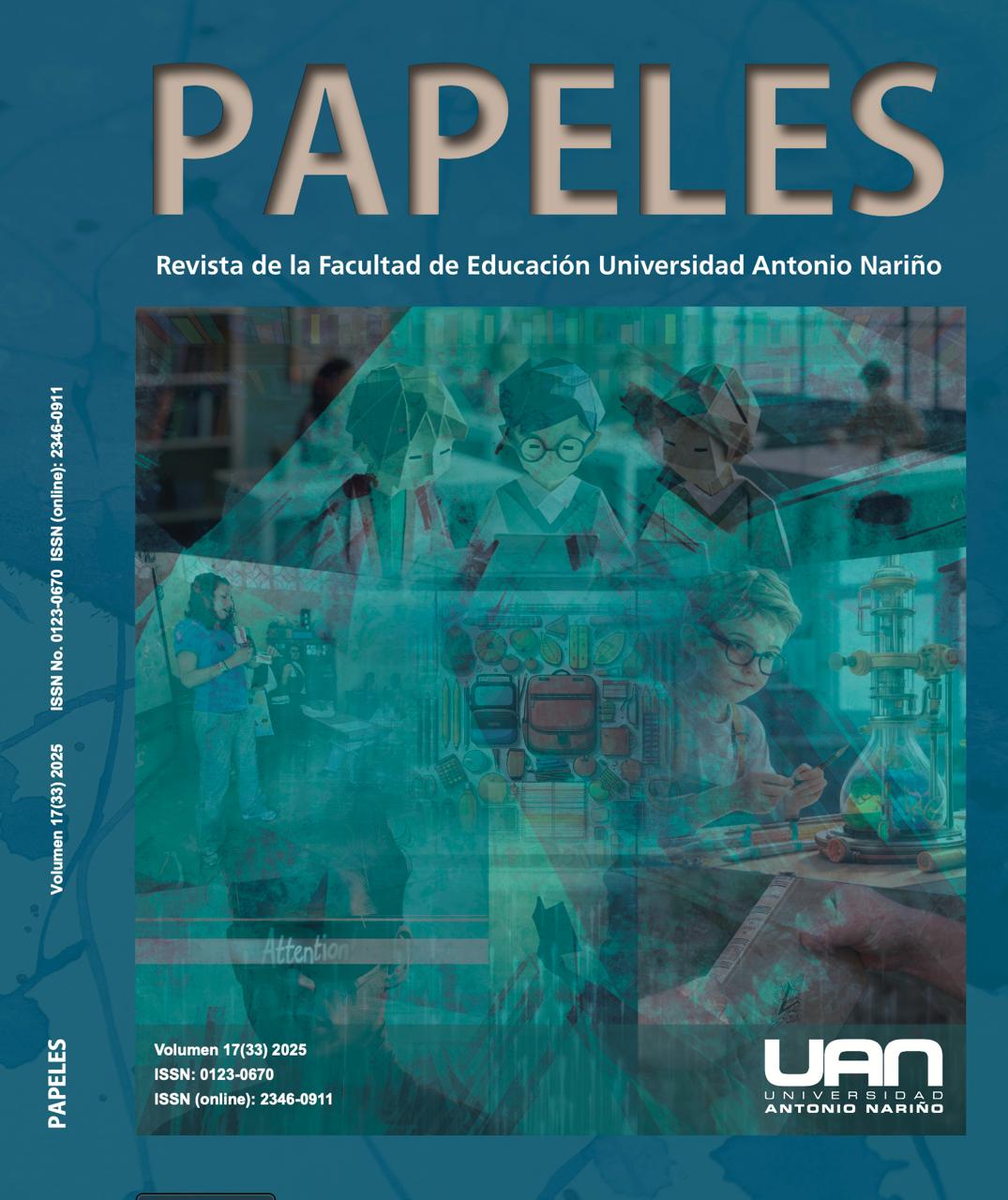Language in Teacher Education Programs at Escuela Normal Rural Ricardo Flores Magón (1929-2022): An Analysis Based on the Historical Archiv
El lenguaje en los programas de educación normal de la Escuela Normal Rural Ricardo Flores Magón (1929-2022): un análisis desde el archivo histórico
DOI:
https://doi.org/10.54104/papeles.v17n33.2142Keywords:
Language, teacher training, historical archive;, curriculum programAbstract
Introduction: This study analyzes how language has been configured as both an object of teaching and a means of professional formation in the study programs of Teacher Training Colleges (escuelas normales), through a historical analysis of the archives of the Escuela Normal Rural Ricardo Flores Magón (ENRRFM). It is guided by the research question: How has language been configured as an object of teaching and a means of formation in the study programs of Teacher Training Colleges? Methodology: Following a qualitative and interpretive approach, the research adopts Grounded Theory as its main methodology. Data were gathered through documentary analysis and semi-structured interviews, and were examined using open, axial, and selective coding to identify emerging categories. Results and Discussion: The findings show that conceptions of language have shifted from normative and prescriptive models to more critical, communicative, and sociocultural perspectives. Language is revealed as a tool for literacy, identity, and thinking, as well as a social practice embedded in community contexts. These transformations reflect ideological tensions between homogenizing policies and inclusive approaches. Conclusions: The treatment of language in teacher education programs has not been neutral, but rather a reflection of historical and political tensions. Language has become a transversal axis in teacher education, integrating knowledge, ethics, and social commitment. A historical perspective reveals its role as a political and pedagogical tool for educational transformation, particularly in contexts of linguistic and cultural diversity.
Downloads
References
Apple, M. W. (2004). Ideología y currículo. Morata.
Barrientos, J. (2022). Perfiles de egreso en la formación inicial docente: Un análisis desde la percepción de los actores educativos en Perú. Académica.
Besse, J. (2019). Memoria pedagógica y archivo en América Latina: Horizontes para una historia crítica de la educación. Consejo Latinoamericano de Ciencias Sociales.
Bonilla Hernández, S. y Sosa Trujillo, C. (2005). Evaluación de las prácticas de crianza y su impacto en la calidad de vida infantil en una muestra de escuelas PEC y NO PEC en el municipio de Puebla [tesis doctoral, Universidad de las Américas Puebla]. https://catarina.udlap.mx/u_dl_a/tales/documentos/lid/bonilla_h_s/indice.html
Canese, V., y Mereles, A. (2024). Innovación educativa y políticas públicas en la formación inicial docente. Revista Latinoamericana de Educación, 18(2).
Carrasco Altamirano, A. y López-Bonilla, G. (2013). Lenguaje y educación: Temas de investigación educativa en México. SM.
Cassany, D. (2006). Tras las líneas: Sobre la lectura contemporánea. Anagrama.
Díaz Barriga, A. (1997). Currículum: Un modelo para armar. Paidós.
Fairclough, N. (2003). Analysing discourse: Textual analysis for social research. Routledge.
Ferreiro, E. y Teberosky, A. (1979). Los sistemas de escritura en el desarrollo del niño. Siglo XXI.
Glaser, B. y Strauss, A. (1967). The discovery of grounded theory: Strategies for qualitative research. Aldine.
Guevara Araiza, A., Ríos Cepeda, V. L. y Ponce Villarreal, J. (2016). La evaluación de los aprendizajes en los programas de formación docente. Revista Ra Ximhai, 12(6), 25-49. https://doi.org/10.35197/rx.12.01.e3.2016.01.ag
Halliday, M. (1994). An introduction to functional grammar. Edward Arnold.
Imbernón, F. (2010). La formación y el desarrollo profesional del profesorado: Hacia una nueva cultura profesional. Graó.
Kalantzis, M., Cope, B., Chan, E. y Dalley-Trim, L. (2012). Literacies. Cambridge University Press.
Macías-Narro, A. (2012). Las reformas educativas III: El caso de México (1900-1940). Odiseo: Revista Electrónica de Pedagogía, 9(18), 1870-1477. https://odiseo.com.mx/marcatexto/las-reformas-educativas-iii-el-caso-de-mexico-1900-1940/
Medina Pérez, J. C., & González Campos, J. A. (2024). Formación inicial docente: análisis de los perfiles de egreso de universidades regionales. Meta: Avaliação, 16(50)
Olivera Campirán, M. (2019). Evolución histórica de la educación básica a través de los programas nacionales, 1921-1999. https://maestrias.clavijero.edu.mx/cursos/MPPGEET2SEMC/modulo1/documentos/evolucionhistorica.pdf
Pinar, W. F. (2012). What is curriculum theory? Routledge.
Piñón, F. (2006). Educación y desarrollo en Iberoamérica: Perspectivas y retos. Revista Iberoamericana de Educación. https://rieoei.org/historico/jano/opinion17.htm
Rockwell, E. (2009). La experiencia etnográfica: Historia y cultura en los procesos educativos. Paidós.
Rodríguez, W. (2019). La formación docente: Su resignificación desde el enfoque histórico-cultural. Pedagogía, 45(1), 95-126.
Salinas, F., López, J. y Ramírez, C. (2023). Profesionalización docente y aprendizaje adaptativo: Un estudio comparativo en América Latina. Revista Internacional de Educación y Sociedad, 21(4).
Secretaría de Educación Pública. (2018). Plan de estudios para la formación de maestros de educación básica.
Secretaría de Educación Pública. (2022). Actualización del currículo de formación docente en México.
Shulman, L. S. (2005). Signature pedagogies in the professions. Daedalus, 134(3), 52-59.
Downloads
Published
-
Abstract273
-
PDF (Español)72
How to Cite
Issue
Section
Categories
License
Copyright (c) 2025 Vera Lucía Ríos Cepeda, Cintya Arely Hernández López, Efrén Viramontes Anaya

This work is licensed under a Creative Commons Attribution-NoDerivatives 4.0 International License.






